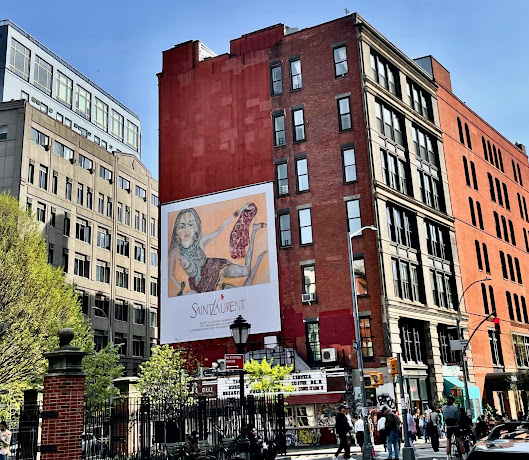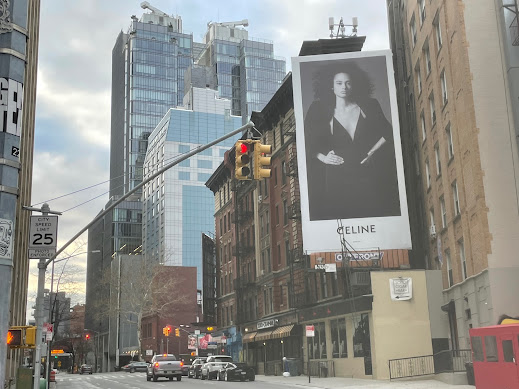(Drivebycuriosity) - Almost everybody knows "Snow White", "Hänsel and Gretel", "Cinderella" & "Rumpelstilzkin", the fairy tales collected by the Brothers Grimm. Ann Schmiesing describes in "The Brothers Grimm - A Biography" the life of Jacob (1785–1863) & Wilhelm Grimm (1786–1859) ( amazon).
The brothers are famous for collecting & publishing fairy tales, but they saw themselves as scholars and even scientists and they worked all their lives on much larger projects.
1. Strengthening German Identity
Their main goal was to preserve the German cultural heritage. The Grimms thought it necessary to strengthen Germany´s identity because the state "Germany" did not exist in their lifetimes. Before the unification in 1871 existed a patchwork of about 300 independent German speaking polities - kingdoms, duchies, counties, electorates and independent cities like Hamburg & Frankfurt; and the European continent was shaken by the rise and fall of Napoleon and the related wars & revolutions.
The Grimm Brothers grew up - and lived many years - in a remote area, named Hessen, that in the early 19th century was occupied by France and ruled by Napoleon, his brothers and other French authorities. Their lives were influenced by the physical and cultural devastation caused by the Napoleonic Wars and their work can be seen as an answer to French cultural dominance and military occupation.
Jacob & Wilhelm wanted to support the struggle against Napoleon. According to the biographer the brothers focused on uncovering the Germanic past by working on older literature partly as a response to the French occupation and the advent of French cultural and political influence. Jacob believed that the shared German heritage pointed the way to a unified German political state. But they also appreciated other national traditions and they published studies pertaining to the languages and literature of Scandinavia, Spain, Ireland, and Eastern Europe, among other nations or regions.
2. Promoting German Culture
The Grimms were also driven "by the desire to preserve something considered valuable before it might be lost". They feared that the German cultural heritage, represented by language, fairy tales and legends, "had been injured by urbanization, industrialization and related factors" and might vanish soon. Therefore they created significant inputs to social sciences like linguistic, literary history, mythography, runology, folklore, medieval studies and lexicography.
Jacob worked years on a book about "German Grammar" and published 1,100 pages in the year 1822. "Grammar" was groundbreaking because it helped establish linguistic as a science. Jacob´s detection of how sounds in the German languages had in the distant past systematically shifted became famous as Grimm`s law. The significance of this work has been compared to that of Darwin`s "On the Origin of Species". Grimm`s contemporary, the poet & literature critic, Heinrich Heine likened "Grammar" to a colossal Gothic cathedral in which the various Germanic peoples sang together, each in their own dialects.
Close to the end of their lives the brothers worked together on their grand dictionary project, with the goal providing a dictionary that would be comprehensive not just with respect to words defined, but also in term of cultural heritage. They thought that "High German" was important for the German cultural heritage and therefore to the goal of German unification. Jacob also published works on German law and mythology and a two-volume "History of the German Language".
3. Fighting For Freedom & Against Censorship
But the brothers didn´t just live on an ivory tower of science. They were political and romantics, skeptical of monarchy, devoted to free speech, opposed to the censorship of literature and the arts. Threatened by burgeoning literacy rates, the rulers of the German kingdoms, duchies and electorates became more zealous in controlling what people could and could not read. Wilhelm wrote in 1815: "The rulers have shown little insights into the lives of their people and little willingness. Nevertheless, I am firmly convinced that a good seed has not only been sown but has also sprouted and can no longer be suppressed. If only it can grow slowly, it will grow that much securely, just as nature manifests itself more nobly in plants that need a longer time to grow but are, as a result, more durable."
The Grimms were part of a group of professors at University of Göttingen (Göttingen Seven) who wrote and signed a statement protesting against the annulment of the constitution of the Kingdom of Hanover by its new ruler, King Ernest Augustus, and refused to swear an oath to the king. As a result the Grimms and the other signers got fired and they had to leave the kingdom immediately to avoid arrest. Today they are celebrated for their bold commitment to liberty.
4. Creating An UNESCO ‘Memory of the World’ Heritage Document
Almost as a byproduct Jacob & Wilhelm created an UNESCO ‘Memory of the World’ Heritage Document: Their famous "Kinder und Hausmärchen" (Children’s and Household Tales). Their informants were literate, middle-class, young adult townspeople and they did not conform to the prevalent image of the storyteller as an uneducated, older peasant woman from the countryside.
The Grimms often edited and altered the plots, for instance in an earlier version "Rumpelstiltskin merely run away in rage after the miller´s daughter correctly guesses his name", in a later version "Rumpelstiltskin angrily stomps his right foot into the ground and sinks up to his waist, then pulls his left foot so forcibly that he tears in two and destroys himself". Wilhelm also mixed two or more tales to form the version presented in the second version.
5. Personal Struggles
Grimm`s work is even more impressive because all their lives both brothers were struggling. Wilhelm had severe health issues, he suffered from asthma and had a troublesome heart ailment. And the Grimms had to deal with stressed finances because their salaries at universities, libraries and other employments were meager and their "Kinder und Hausmärchen" wasn´t a success during their life time. "They often rationed their food, at times sharing portions among themselves, skipping meals, going out without wine, and cutting out evening tea when the price of sugar rose too high".
6. Conclusion
The biographer concludes: "Through tens of thousands of painstakingly researched pages of published scholarship and collected texts, the Grimms were among the foremost contributors to the post-Napoleonic German national awakening. Together or individually, they had collected folk songs, fairy tales, legends, myths, customs, legal texts, and related documents attesting to the cultural production of the German-speaking lands."
Ann Schmiesing, a professor and administrator at the University of Colorado Boulder, did an impressive job. Besides covering the lives of the brothers and their families & friends, she also introduced the reader into a historical epoch of the German speaking lands and describes the fundamental political movements that changed the world of the Grimms.
This blog post is just a condensate and it might be biased by my own world view as an economist, therefore I really recommend reading this wonderful book.
PS On top of this post I use a fictional image of Dorothea Viehmann, the woman who allegedly delivered most of the fairy tales. The image represents the Grimms visiting Viehmann at her cottage.




















